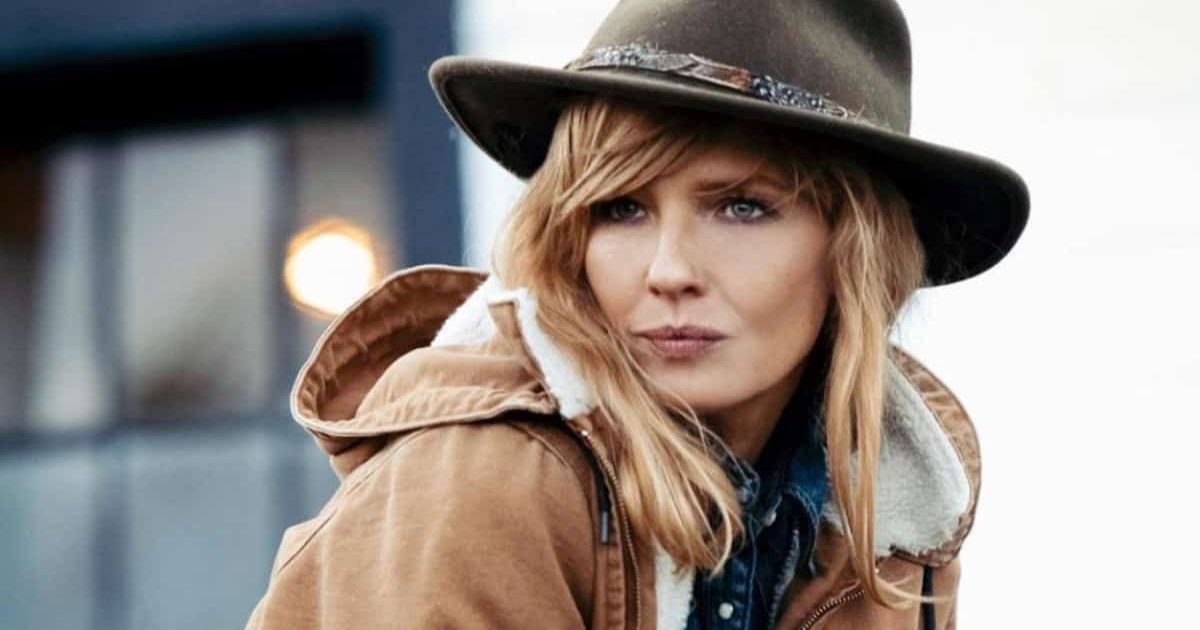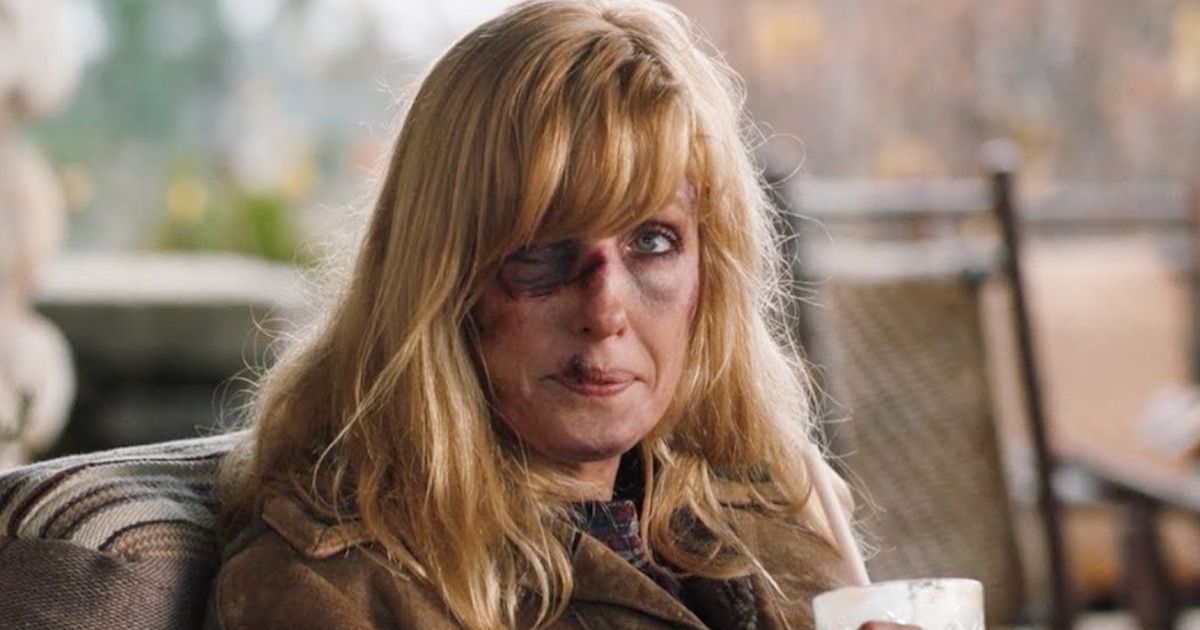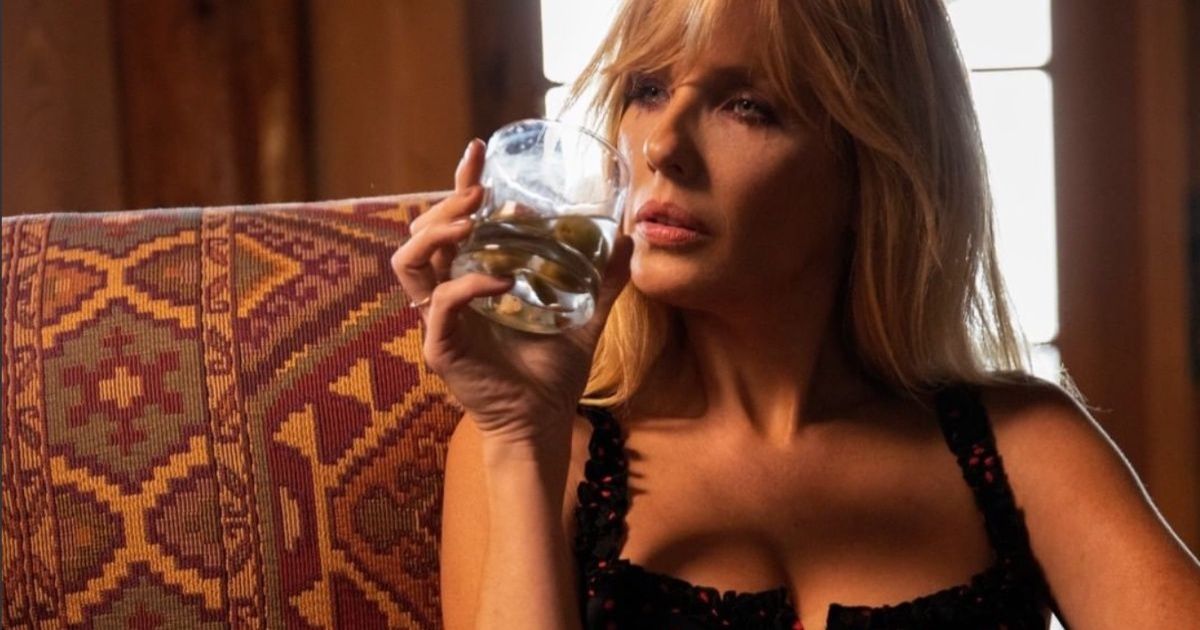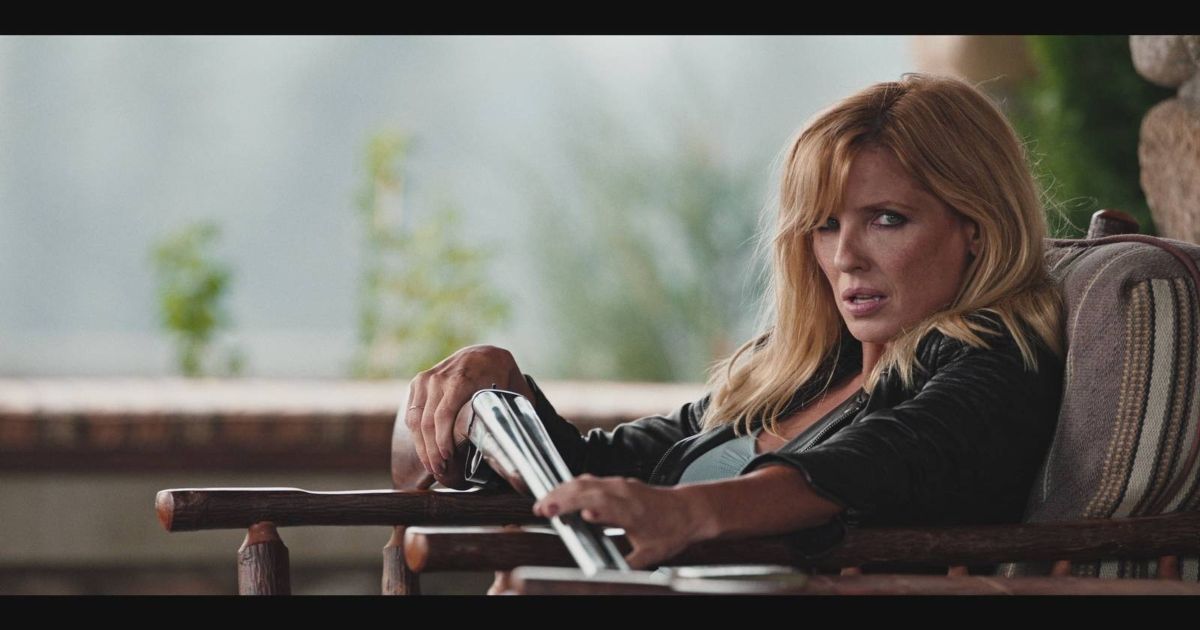Spoiler Warning: Yellowstone Seasons 1-4
The fourth season of Yellowstone has been out in the wild for some time now. And for whatever reason, it feels like many were late to the party. Luckily, Peacock just unleashed all the latest episodes.
From our first look into the Yellowstone universe back in 2018, we took a fast dive into the center of the show's ongoing conflict: It's man vs. man, man vs. nature, and man vs. society wrapped up into one, big, entertaining mess. While there may be a more politically correct, inclusive description, the meat of the series is (unapologetically) transparent. A man John Dutton (Kevin Costner), and his army of mostly male cowboy soldiers, fight to protect his land. Some key fighters among his troop of loyal warriors are his sons Kayce (Luke Grimes) and Jamie (Wes Bentley), his right-hand man Rip (Cole Hauser), and his only daughter, Bethany, played by the ever-impressive Kelly Reilly. And let's face it, Reilly's portrayal of Beth is a show on its own.
Fueled by loyalty and, for some, by insecurity (*cough* Jamie), each member of the Dutton clan has a unique set of skills curating their battle to protect the Yellowstone ranch. But all winning teams come with their handicaps, and Team Dutton is no different; it's been one bloody feud, explosive ego, and internal dilemma after the next. And if there's one all-star player who proves "what doesn't kill you makes you stronger," all signs point to Beth, who not only embodies this sentiment but redefines it entirely. Let's talk about why.
She Doesn’t Just Hide Fear — She Uses It as a Weapon
Toward the end of season 3, Beth shares a heartfelt chat with Rip. She claims she made two bad decisions in her life based on fear, which "cost [her] everything." (At this point, we can assume she's referring to how she handled her unplanned pregnancy and her mother's death during her adolescence.) Now, it seems that Beth's not afraid of anything. But that's just it. To take on the world with a brave face, especially the world of Yellowstone, it's not enough to hide your fear, or worse — suppress it. You have to use it.
The most glaring portrait of this phenomenon is when the Beck brothers hire men to infiltrate Beth's office to send a message to the Duttons. During one of the show's most brutal attacks, Beth takes a beating that far exceeds anything we have seen yet with the boys. The men who leave her bloody and bruised aren't there to kill her (the scene would have ended a lot sooner if that was the case). They are there to scare her. Fear is the only thing they need, and it's the only thing she won't give them, even if it means sacrificing her body or her life. And wouldn't you know it, guess who comes out alive.
She Makes People Uncomfortable For All The Right Reasons
Nestled inside Montana's beautiful backdrop of snow-capped mountains lies a land of broken bones, gunfights, and family dysfunction that makes the Ozarks look like a walk in the park. With so much drama in the Yellowstone ranch, we can thank Beth for about every ounce of comedic relief we get. One minute, she's putting another horny barfly in his place. The next, she's grabbing a woman's phone and smashing it to the ground to stop her from filming her. Every time it feels like she's outdone herself, Beth berates some other helpless victim who comes her way ten times harder.
While some feel more warranted than others, Beth's dramatic outbursts aren't all in vain. In fact, most of the time, she ends up teaching someone a valuable lesson, even if they don't deserve it. Take, for example, a young couple who approaches the bartender, both claiming they need to use the restroom. The man leaves first and tells the woman he's with to order him a drink. Unsurprisingly, Beth had some words to share with her. What started as an awkward confrontation ended with a woman's empowerment to assert herself when her partner returned. All thanks to Beth.
Another iconic display of Beth's jaw-dropping theatrics is when she comes to the rescue of our beloved Monica (Kelsey Asbille). This time, it was about more than having fun with strangers at the bar. After a snobby store owner racially profiles and wrongfully accuses Monica of stealing, Beth doesn't stop at sending the police away. She doesn't stop at smashing up the store. She stops after forcing the stuck-up store owner down to her underwear — the same way police did during their full-body search with Monica —and only because Monica's moral compass came to the store owner's rescue.
Beth (and we) can appreciate Monica not wanting to inflict her pain onto others, even the oppressors causing it. We can also appreciate Beth's assertion that the woman who abused Monica will spend the rest of her life unable to forget her. Not just because Beth chose to get even, but because she made her painfully aware that Monica is a better person. Sure, maybe two wrongs don't make right. But in some cases, it takes another bad guy to step in and set things straight, and there's no better bad guy than Bethany Dutton.
She Redefines What It Means to Be a Renaissance Woman
Though it may be a present-day western, there's nothing modern about life on the Yellowstone ranch. Gender roles are no exception to this. We can spend an eternity discussing what it means to be a pioneer in our modern world, where men still hold most of the power. But one fact remains: the series doesn't try to be anything it's not. And neither does its leading lady. As the show's sharpest character, the world is quite literally Beth's oyster to suck down, spit out, and send back to the kitchen if she so chooses. Yet, here she remains. Because when it comes to business and success, every personal and professional move Beth makes is for those she fights for, no matter the cost.
In a generation powered by self-empowerment and new-age ideals, some could argue Beth's stubborn obedience and self-sabotaging habits make her underqualified as a contemporary icon. But there's a reason why the most vulnerable, self-destructive, and damaged on-screen heroes are the ones who pull us in the hardest; it's their flaws that make their perseverance that much more satisfying and redeeming to watch. As for this particular heroine, Beth Dutton's invigorating commitment brings a breath of fresh air to a world that desperately needs it.




